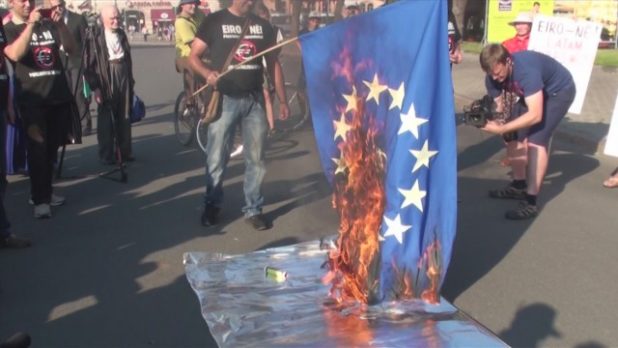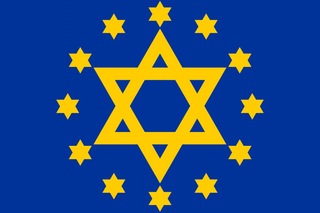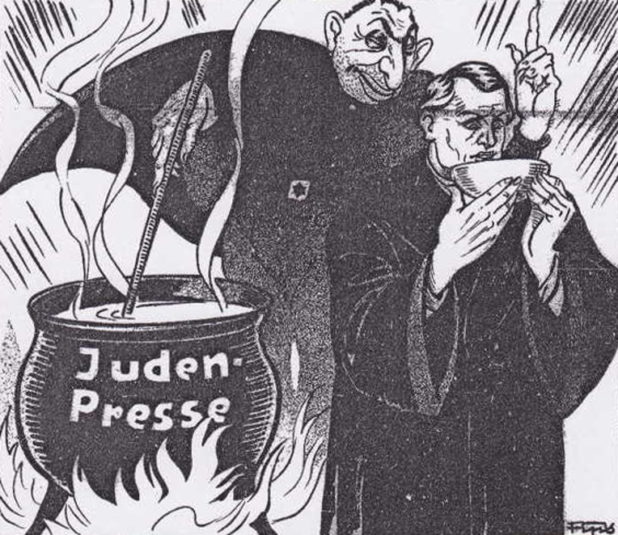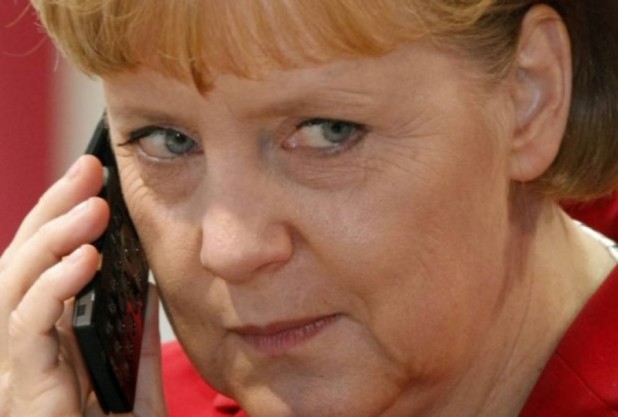Eric Striker
Daily Stormer
January 24, 2017

In anticipation of a number of elections in Germany, France and the Netherlands this year – where all of the hand-picked plutocratic candidates are in grave danger according to polls – the European Union is accentuating the recent ban of news the German government disapproves of by increasing funding of its East Stratcom Task Force in hunting down pieces of media they arbitrarily label “Russian Disinformation.”
It is implied in news articles that this won’t be limited to RT and Sputnik – both of which are funded by the Russian government – but also encompass media entities with points of view the EU doesn’t like, such as Breitbart, which is currently seeking to make inroads in the European media market.
Everything that challenges the narrative of Judenpresse and quasi-governmental media even slightly is Russian terrorist propaganda, in other words. There is no other plausible reason for why people are angry at Angela Merkel and Francois Hollande, and might vote against them and their policies.
With national elections in Germany, France and the Netherlands in the coming months, extra funds have been made available to the EU’s East Stratcom Taskforce, which is seeking to collate and counter Russian attempts to influence votes through disinformation and propaganda.
The cash is to be spent over the crucial next six months and is coming from the current budget of the EU’s external action service (EEAS) with senior MEPs admitting that they fear Russian success in apparently influencing the recent US election will only encourage campaigns on the continent.
Petras Auštrevičius, an MEP for Lithuania, said it was clear that the EU needed to be “more agile” in responding to disinformation campaigns. “I think the Russian involvement in the US election was a test case. For Russia it was important for them to start big. I think for smaller countries, more exposed to Russia, the risk is now very big.”
The EU set up a team in the autumn of 2015 to counter fake news and misinformation coming from the Kremlin. The unit, known as East StratCom, has 11 staff, dedicated to explaining the EU and countering anti-western myths circulating in Russia and other former Soviet states. It is understood a further eight permanent positions will be created by the new funds – around €800,000 (£688,000) – although it is hoped another major injection of extra money will be made later this year.
The unit was set up at the behest of EU leaders to tackle misinformation emanating from the Kremlin but is increasingly encountering fake news from non-Russian sources, such as Breitbart.
…
EU officials estimate that Russia spends $1bn (£801m) on state media outlets, such as RT and Sputnik, with an unknown budget for troll factories, which flood social media with anti-western diatribes. In contrast, the EU unit relies mostly on member states and a modest slice of the EU’s communication budget.
The EU’s team has collected around 2,500 examples of disinformation in 18 languages, although officials believe they are only scratching the surface. Since the Cologne attacks on New Year’s Eve 2015 Angela Merkel, the German chancellor, has emerged as the biggest target for Russian disinformation.
Donald Tusk, the European council’s president, warned in October that “Russia’s strategy is to weaken the EU,” highlighting “all sorts of Russian activities, from airspace violations, disinformation campaigns, cyber attacks [to] interference in the political processes of the EU”.
…
Speaking in October, she said: “We receive their broadcasts and there is part of the population that watches it every day. They also give the interpretation of not only what is happening in Russia, elsewhere in the world, in Ukraine, but also of issues of domestic concern – what is going on in our country, and this is where the danger lies. The messaging is much more subtle. It sometimes tries to show ‘see the government cannot cope, it cannot solve your everyday concerns’, implying there is something wrong with the political system and the government. At the same time there is no real possibility for us to compete in the sense that Russian TV channels have much bigger financial resources and entertaining capacity.”
The Baltic states were fighting a lonely campaign against Russian disinformation only a few years ago, she recalled. “Other countries that didn’t feel so much exposed today encounter the same kind of influences that we are used to.”
Both Angela Merkel and Vladimir Putin have ruled their respective countries over a similar period of time, and RT has been around since 2005. While Sputnik sometimes ventures into the realm of disinfo, RT’s news is top notch with editorial standards comparable to any other major news organization. During the Crimean rebellion, a number of RT anchors openly criticized Russia’s role in the conflict, while American, EU, and other entities rarely do anything but shill for their governments.
The problem the EU has with Russia Today is that it sheds light on issues like immigration policy, which EU leaders know is unpopular but are counting on their pet journalists to lie and obfuscate the facts in order to scrape into another term to finish destroying Europe. This is failing because Russia Today is telling the truth and German, French, American, etc. media are all lying.
As for the money being put into Russia’s foreign media, $1 billion is nothing compared to what the British state pumps into the Jew-run BBC yellow-press. The BBC’s Russian outpost operates just fine.
On the other hand, Russia in 2014 did take measures to counter American propaganda outlet CNN, but they were lambasted as tyrants and despots for it. The coalition of Jews and fellow travelers at the NGO “Reporters Without Borders” has ranked Russia at a dismal 148 of 180 in respects to “press freedom,” yet at the same time, Germany is ranked at a laughable 16!
This is the same Germany that last year launched a Europe-wide crackdown on dissidents, where journalists for the web portal Altermedia from across the continent were dragged away into the night by the illegitimate BRD secret police. The Netherlands (#2) and Sweden (#8) also have taken extremely harsh and punitive measures against individuals merely engaging in the universally recognized right to journalism and political dissent.
And that’s the paradox these Jews and plutocrats are in. None of their institutions clamoring for “human rights” and “press freedom” (in Russia, that is) have any credibility, because they flagrantly violate their own accords under pretenses nobody believes anymore.
As rage against the policies of the Merkel regime, the French state, and other European Union plutocracies hits fever pitch, expect more and more of this grumbling to be blamed on Russian trolls nobody has proven exist, or “Russian disinformation” whenever news of an Arab/black on white gang rape manages to leak out of tightly sealed state police blotters.
And shame on these yapping little Baltic states who think turning Paris into Karachi and Berlin into Mogadishu is a worthy price to pay for their empty saber-rattling against Russia. At the end of the day, they’re just Soviet rump states that have been given a sense of purpose by Jews who are waiting to destroy them too when the time is right.
If Merkel wins in 2017, Lithuania and Estonia will get plenty of “Russian disinformation” once they get their “fair share” of child-raping non-white invaders running them over with trucks.


